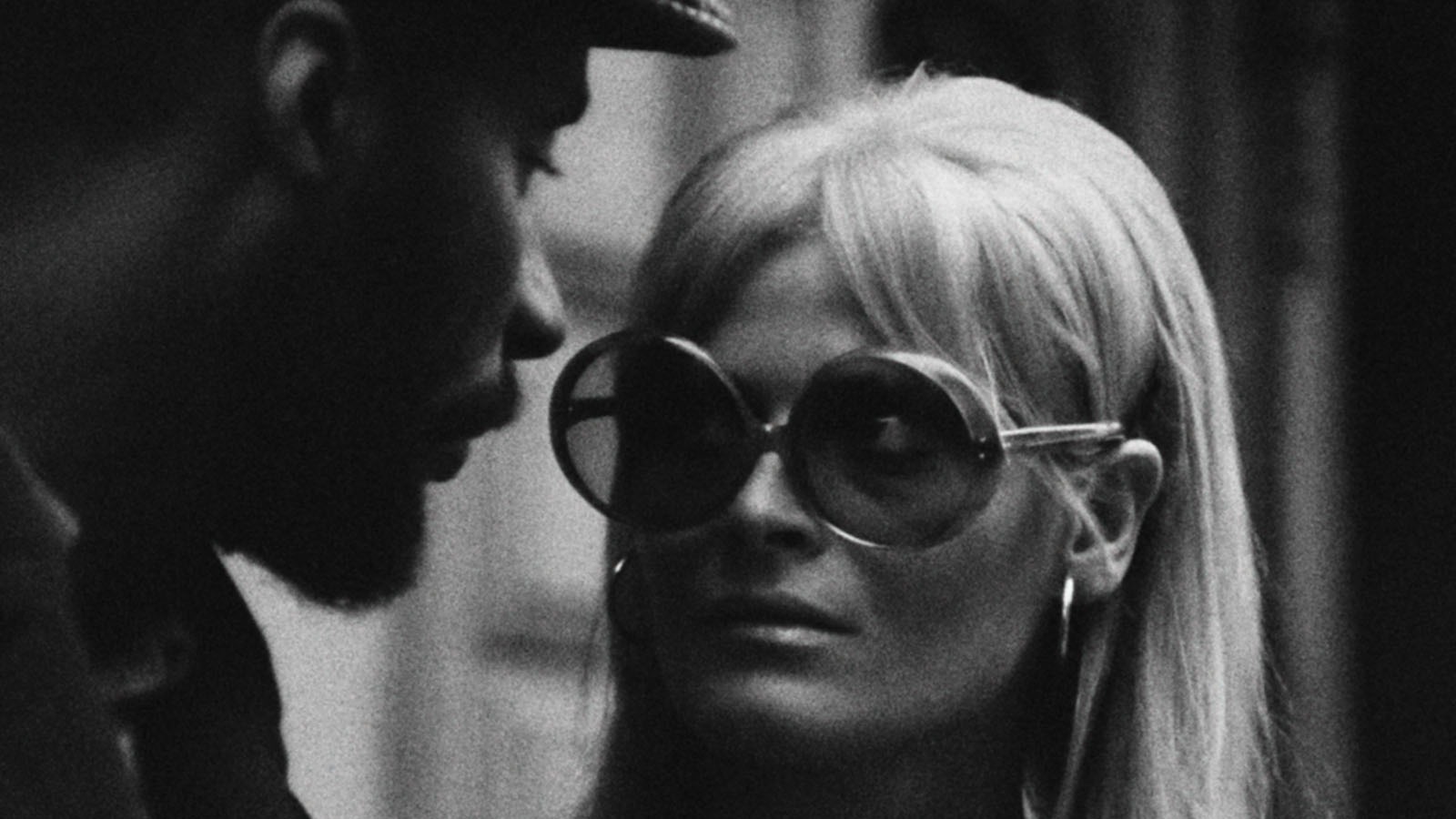Pop Histories

Rhonda Fleming, who has passed away at the age of ninety-seven, first dazzled audiences with her fiery red hair and piercing green eyes in 1948, when she appeared opposite Bing Crosby in Tay Garnett’s A Connecticut Yankee in King Arthur’s Court (1948). But she made quite an impression in black and white, too, as a psychiatric patient in Alfred Hitchcock’s Spellbound (1945) and a two-timing secretary in Jacques Tourneur’s Out of the Past (1947). “Fleming could essay an upfront, often confrontational personality that made her perfectly suited to the tough genres of film noir and the western,” writes Pamela Hutchinson for Sight & Sound. For Dan Callahan at RogerEbert.com, Fleming’s “finest hour on screen was in Slightly Scarlet (1956), a Technicolor noir directed by Allan Dwan in which Fleming was paired with another sultry redhead, Arlene Dahl, in a story where they got to play sisters. Dahl is the more hot-to-trot of the two sisters in that picture, but Fleming makes an impression as she stealthily walks around the shadowed interiors.”
- The new issue of Senses of Cinema opens with a dossier on pop music in the movies, a collection of sixteen appreciations, each as brief as a song, devoted to moments when just the right tune sends a film soaring. Selections range from Adriano Celentano’s performance of Little Richard’s “Ready Teddy” in Fellini’s La dolce vita (1960) to Rihanna’s “Diamonds” sparking a lip-syncing celebration in Céline Sciamma’s Girlhood (2014) to “Jaan Pehechaan Ho” the raucous dance number from Raja Nawathe’s The Unknown (1965) that opens Terry Zwigoff’s Ghost World (2001). Other features address films by Kelly Reichardt, Barbara Loden, and Alex Ross Perry as well as rarely seen early work by Stanley Kubrick. And the new inductees into the Senses database of great directors are Tony Scott and the late Jiří Menzel.
- Celebrating its freshly redesigned website, the New York Review of Books has dropped its paywall through November 3, offering free access to the full archive of over 20,000 articles. Now’s the time to catch up with J. Hoberman on Jean-Luc Godard, Hou Hsiao-hsien, Chris Marker, Terence Davies, Bong Joon-ho, and David Cronenberg; Geoffrey O’Brien on Ernst Lubitsch, Orson Welles, Preston Sturges, Jacques Becker, Steven Spielberg, and Paul Thomas Anderson; Zadie Smith on Charlie Kaufman and Christian Marclay; Luc Sante on Charlie Chaplin, Jacques Rivette, and Olivier Assayas; Francine Prose on Maren Ade, Todd Haynes, and Andrea Arnold; Adam Thirlwell on David Lynch, Raúl Ruiz, and Whit Stillman; Hilton Als on Diane Keaton; Michael Wood on Alfred Hitchcock, Robert Bresson, Luis Buñuel; Max Nelson on Stan Brakhage, Claire Denis, and Chantal Akerman; Namwali Serpell on Yorgos Lanthimos and Ridley Scott; James Quandt on Mrinal Sen, Wang Bing, and Werner Schroeter; Pico Iyer on Satyajit Ray and Akira Kurosawa; James Baldwin on Elia Kazan; and of course, Susan Sontag on Leni Riefenstahl and Hans-Jürgen Syberberg.
- Every year, Filmmaker spotlights twenty-five “New Faces of Independent Film,” and the latest round includes Ephraim Asili, who opened the new Currents program at the New York Film Festival a few weeks ago with The Inheritance; cinematographer Shabier Kirchner, who worked with Steve McQueen on the Small Axe anthology series; Merawi Gerima, whose Residue won the audience award at Slamdance; and Tayler Montague, whose debut short film, In Sudden Darkness, is, in the eyes of Anne Cohen at Refinery29, “a self-contained jewel, a quiet but vivid slice of life evoking the strong feelings and imagery that such a moment awakens in a child.”
- In the Notebook, Celluloid Liberation Front celebrates the “recent resurgence in the collective memory and consciousness of world cinema” of Mauritanian filmmaker Med Hondo. “Flamboyant and anti-clerical, modernistic and anti-colonial, folkloristic and experimental, his films resist categorization and bear testament to the possibilities of the medium.” Soleil Ô (1970), “one of the most dazzling debuts in the history of cinema,” positively “vibrates with a political immediacy that’s almost musical, never didactic.”
- In a marvelous two-parter for Reverse Shot, Nick Pinkerton takes us on a leisurely paced ride through the history of the drive-in, beginning in the 1930s and peaking in the ’50s, when there were more than 4,600 theaters in the U.S. In the late ’60s, “a whole host of hucksters, hustlers, and sleazoid poets [kept] the drive-ins supplied with works of prurience, savagery, and salacity . . . Tickets were sold, Thunderbird flowed like wine, and the odor of ditch weed filled the air. Vans rocked, and no one knocked.” Television and home video gradually drove the number of theaters down to the low hundreds over the decades that followed, but the pandemic has sparked a revival. Last month, Pinkerton attended the “Art Movie Hell” double bill programmed by John Waters for the NYFF: Gaspar Noé’s Climax (2018) and Pier Paolo Pasolini’s Salò, or the 120 Days of Sodom (1975), ensemble films about people behaving badly “in isolated, closed environments,” as Pinkerton points out. “The resonance of both in cabin fever times I don’t need to underline.”



